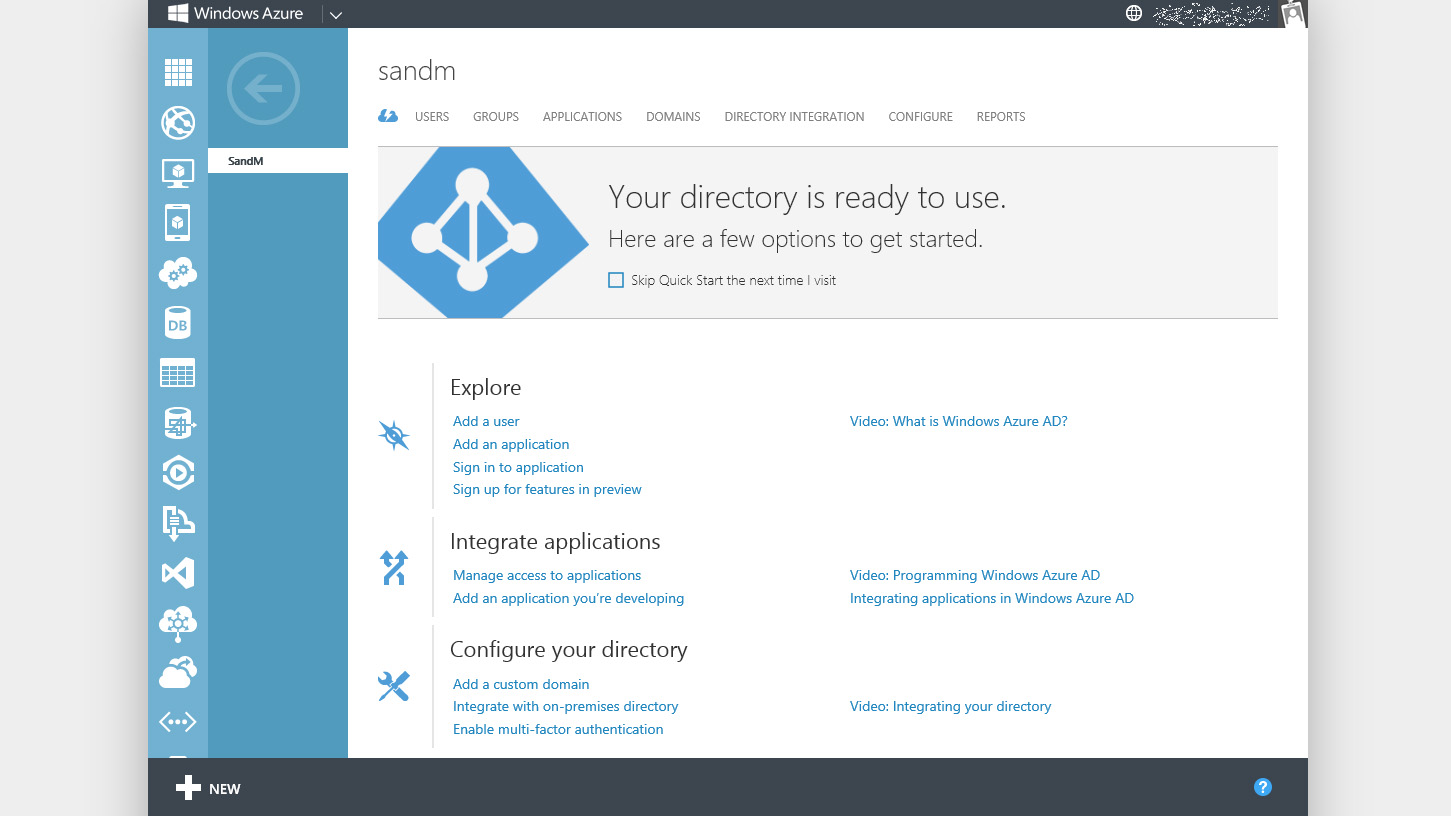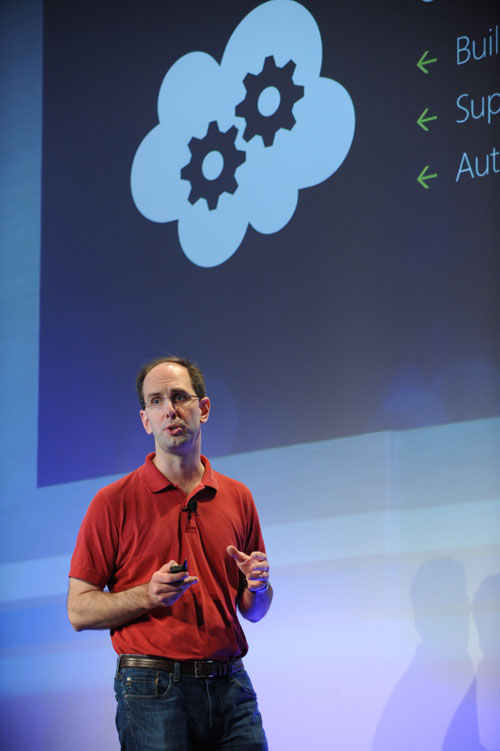Microsoft: Azure can beat Amazon and IBM cloud solutions
Azure is cheaper than Amazon and IBM is only investing in marketing it reckons

Sign up for breaking news, reviews, opinion, top tech deals, and more.
You are now subscribed
Your newsletter sign-up was successful
Amazon might be the name you think of when it comes to business cloud infrastructure, but with all the features Microsoft has been adding to Azure (with updates and improvements coming every two to three weeks), corporate vice president Scott Guthrie thinks Microsoft's cloud platform has the advantage. It's priced to be as cheap as Amazon but with more options worldwide.

"We have global coverage everywhere Amazon does and we have more regions too," Guthrie told us. "We have China, they don't have it yet; in Europe we have two [regions], they only have one, likewise in Japan we have two, they only have one. This gives you lots of options around redundancy. Right now, if Amazon went down in Europe or a natural disaster struck, every company that's in Europe would have to move their data outside of Europe. Our strategy of having multiple regions is helpful for the latency side and also for the disaster recovery side."
Neither Amazon nor Google offer businesses the same control over accounts Azure does, now that you can associate an MSDN account with your Active Directory account at work, he points out. "Being able to use your Active Directory credentials now to log in to Azure and associate it with your MSDN account; even very conservative organisations that previously said 'well, what happens when the employee leaves? I don't want them having a password.' Now you can [control that], now you can do multifactor auth. Now you can tie the two together and I can require that my employees only use ActiveDirectory in the cloud."
Azure also offers more secure ways to get your data into Azure, whether it's shipping a hard drive directly to Microsoft (in your own country) or getting a private network connection between your data centre and Azure using high-speed MPLS. Many wide-area networks already use MPLS and setting up a new connection is fast. "For an MPLS customer, connecting to Azure is super easy," says Guthrie; "it takes less than a day. Getting dedicated fibre, running a cable? That's not a day, that's more like three months. Amazon doesn't support MPLS today, so we think we're differentiated there."
If you want to upload a lot of data, doing it over a network is necessarily the best way (it can be expensive or it can just slow down your other network traffic). If you ship a hard drive, Microsoft has an extra layer of protection Amazon doesn't, because you can encrypt the drive with BitLocker. "FedEx is usually pretty secure but if you've got critical data you want to make sure no-one can possibly tap it or intercept it, the BitLocker protection is a pretty unique thing that we offer to do that."
Big Blue comes to town
IBM's recent entry into cloud services doesn't impress him either. "We keep an eye on them; they seem to be spending a lot of time on the marketing side, but I haven't seen that much on the engineering side yet. They bought Softlayer, which wasn't really a cloud hoster; it was much more of a managed hoster." Just because the IBM name is familiar doesn't mean companies will choose them in the cloud. "For big enterprise vendors that don't have a solid cloud strategy, especially infrastructure vendors; well, it's interesting times."
Azure offers a lot more than just running your VMs in Microsoft's data centre and the backup services are proving particularly popular says Guthrie. "Take backup, take our Storsimple offering, take Hyper-V replicas, take database backup, take SaaS management with Active Directory [for single sign-on]; I think there are a lot of people who are basically extending the on premise environment to the cloud for IT scenarios, infrastructure scenarios. And next year I think you will see even more next year people using the cloud for disaster recovery and as a second backup site in case things go wrong."
Sign up to the TechRadar Pro newsletter to get all the top news, opinion, features and guidance your business needs to succeed!
Mary (Twitter, Google+, website) started her career at Future Publishing, saw the AOL meltdown first hand the first time around when she ran the AOL UK computing channel, and she's been a freelance tech writer for over a decade. She's used every version of Windows and Office released, and every smartphone too, but she's still looking for the perfect tablet. Yes, she really does have USB earrings.